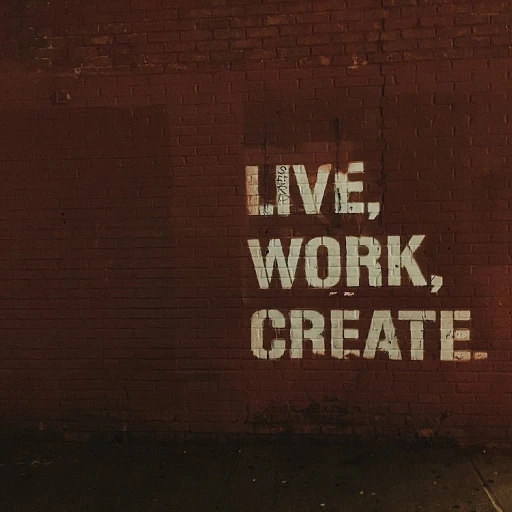Explore the latest in criminal background check trends, from data privacy to compliance, and how they impact hiring practices across the United States and beyond.
The Growing Importance of Background Checks
Elevating the Significance of Employee Background Checks
In today's increasingly interconnected world, the demand for criminal background checks has never been more pronounced. Employers and institutions alike are placing greater emphasis on these screenings as integral components of the hiring process. With the complexities that come with remote working environments and global hiring practices, there's a heightened awareness of potential risks and liabilities that inadequate screenings could pose.
Understanding just why these checks hold such prominence today requires a deeper dive into several aspects influencing their evolution, which will be unpacked further in this article. From the stringent data privacy regulations that shape the compliance landscape to the ever-growing role of technology in making screenings more comprehensive and efficient, various factors are at play.
The technological advancements in background screening processes make it possible to sift through massive datasets with remarkable accuracy and speed. However, with innovation comes the challenge of maintaining ethical standards and ensuring data privacy, a topic we'll discuss later. Employers are now also turning to social media platforms as supplementary tools for gathering candidate information, although this too brings its own set of complexities and ethical considerations.
Furthermore, there's a burgeoning trend toward embracing fair chance hiring practices. This progressive shift aims to level the playing field, especially for those with criminal histories, by advocating for fairer evaluations that go beyond mere past records. With regional nuances and market insights further coloring this backdrop, understanding the current trends in background checks requires a nuanced approach.
In this evolving landscape, the importance of comprehensive criminal background checks remains undeniable, influencing not just hiring decisions but also shaping workplace culture and safety protocols across industries.Data Privacy and Compliance in Background Screening
Balancing Data Privacy with Effective Screening
The evolving landscape of criminal background checks places significant emphasis on a delicate balance between data privacy and compliance. As the need for comprehensive screening increases, so too does the necessity to adhere to stringent data protection laws. Organizations are tasked with not only ensuring that they gather accurate and relevant information but also that they process this data responsibly, respecting the individual's privacy.
Privacy regulations, such as GDPR in Europe and the CCPA in California, set a high bar for compliance. Businesses must navigate these complex legislative waters to avoid unpleasant legal repercussions. As discussed earlier, the growing importance of these checks means that companies cannot afford to overlook compliance issues; instead, they must integrate these considerations into their screening processes.
Moreover, as the role of technology in background checks becomes more pronounced, data handling protocols must evolve. Companies are increasingly turning to digital solutions to streamline checks efficiently while maintaining the confidentiality and integrity of personal information. This trend toward more tech-driven processes must include robust data protection measures to ensure they meet regulatory standards and uphold consumer trust.
As we consider the broader trends in criminal background checks, the impact of social media further complicates the privacy issue. While it can provide a rich vein of information, it also poses significant ethical and compliance challenges. There's a growing recognition of the need for clear guidelines to balance what is necessary for safety and suitability assessments with respecting personal privacy boundaries.
In summary, the landscape of criminal background checks is rapidly transforming, with data privacy and compliance standing as pillars of this evolution. Organizations must be diligent in developing processes that serve their security needs while also protecting the rights of individuals, thereby fostering a fairer and more secure hiring environment.The Role of Technology in Modern Screening Processes
Embracing Tech: Welcome to the New Age of Screening
In our rapidly digitalizing world, technology has become an undeniable force across various industries, and background screening is no exception. While the growing importance of background checks and the ever-evolving landscape of data privacy and compliance set essential foundations, it is technology that propels this crucial process into the future.
In recent years, we have witnessed a transformation in how background checks are conducted, largely driven by advances in technology. First and foremost, automation plays a crucial role, significantly reducing the time it takes to complete screenings. Many companies have adopted AI-driven solutions to streamline the process, enhancing efficiency and ensuring accuracy in the results. Employers no longer need to wade through mountains of paperwork; digitization grants them the agility to perform thorough checks within shorter timeframes.
Furthermore, advanced algorithms and machine learning capabilities have fundamentally changed the way data is processed and analyzed during background checks. Such technologies are able to detect patterns and anomalies that may not be immediately apparent to human screeners, thereby enhancing the precision and depth of screenings.
Additionally, the integration of blockchain technology presents intriguing possibilities for data security and transparency. Its potential to create immutable records offers an innovative solution to ensure data integrity and protect sensitive information, bolstering the security framework in background screening processes.
Of course, as we explore the digital transformation of the screening landscape, the rise of social media becomes an indispensable component that intersects with technology. Companies increasingly use social media as part of their due diligence, sifting through publicly accessible information to obtain a more comprehensive view of potential hires.
The technological advancements reshaping the background screening industry are paralleled by a heightened focus on ethical practices such as fair chance hiring, promoting a balanced approach to screening that recognizes both data-driven insights and human considerations. This juxtaposition underscores the importance of technology not only as a tool for efficiency but also as a driver of equitable practices in the workplace.
In conclusion, as technology continues to evolve, it will invariably shape the future of criminal background checks, reflecting broader cultural and social changes. It is clear that the synergy between technological innovation and ethical responsibility greatly benefits both employers and job seekers, laying the groundwork for informed, fair, and secure hiring practices across the globe.Leveraging Social Media in the Vetting Process
In today's digital age, social media has become an integral part of our daily lives, offering a window into personal and professional lives like never before. This phenomenon has significantly influenced how employers approach criminal background checks. With a substantial amount of user-generated content available on platforms like Facebook, Twitter, LinkedIn, and Instagram, companies are increasingly looking to social media as a supplementary tool for gaining insights into a candidate's character and professionalism.
While traditional criminal background checks remain an essential aspect of the hiring process, integrating social media checks allows employers to explore a candidate's online presence and personal brand. This method can present both risks and opportunities. For instance, it can reveal behaviors or affiliations that may not have been evident through conventional screening methods. On the flip side, social media can also highlight positive attributes such as volunteer work, professional achievements, and endorsements from peers.
However, it’s crucial for employers to handle social media screenings with caution and adherence to privacy laws and ethical guidelines, as discussed in the section on data privacy and compliance. The fine line between what is permissible and what crosses into invasion of privacy is blurred, necessitating careful consideration and possibly even limiting the scope of social media checks to professional platforms like LinkedIn.
Incorporating social media into the screening process can also be challenging due to the ever-changing nature of these platforms and privacy settings. This is where the role of technology, as explored previously, becomes vital. Advanced technologies, such as artificial intelligence, can assist in efficiently collecting and analyzing social media data while ensuring compliance with data protection laws.
Ultimately, while the impact of social media on background checks is undeniable, it is part of a larger trend towards more nuanced and comprehensive screening practices. As fair chance hiring practices continue to rise, companies must strike a balance between gaining valuable insights and adhering to legal and ethical standards.The Rise of Fair Chance Hiring Practices
Embracing Fair Chance Hiring in Background Check Processes
As we delve into the evolving framework shaping criminal background check trends, one cannot overlook the significant shift towards fair chance hiring practices. This movement is gaining traction as employers recognize the importance of offering equitable opportunities to individuals with prior criminal records, promoting a more just and inclusive workforce.
The concept of fair chance hiring is backed by initiatives and legislation such as "Ban the Box," which calls for the removal of the criminal history question from job applications. This allows candidates to be evaluated on their qualifications and experiences before disclosing past convictions. The shift aligns with an increasing societal awareness of the barriers that convicted individuals face when reintegrating into the workforce. Employers adopting fair chance policies are not only contributing to reducing recidivism rates but also tapping into a wider talent pool.
Integrating fair chance hiring practices into background screening processes requires a delicate balance with data privacy and compliance obligations, as previously discussed. Employers need to ensure they abide by relevant laws and regulations while maintaining a commitment to equitable hiring. They must adopt comprehensive policies that consider the nature of an individual's past offenses, the time elapsed since the conviction, and their rehabilitation efforts.
Moreover, technology continues to play a vital role in modernizing and streamlining these processes. With advanced screening tools, employers can efficiently apply personalized assessments that align with fair chance practices. These tools ensure that background checks are conducted in a manner that is respectful of both compliance standards and the candidate's potential for positive contributions to the organization.
Looking ahead, it's clear that fair chance hiring is more than a trending topic; it is a transformational approach that reflects broader societal changes towards inclusion and equality in employment practices. Employers and background check service providers are increasingly recognizing the value of embracing this trend as part of a comprehensive and ethical background screening strategy.Regional Trends and Market Insights
Exploring Regional Variations and Market Perspectives
When delving into criminal background check trends, it’s crucial to consider the distinct regional variations and market insights that shape these practices globally. Regional differences often stem from diverse regulatory landscapes, cultural perspectives on privacy, and economic factors. Understanding these nuances offers a deeper comprehension of how criminal background checks are evolving across different areas.
North America tends to lead the way in stringent background screening protocols. With its strong emphasis on data privacy and compliance, as previously discussed, companies in this region invest heavily in sophisticated background screening technologies. Moreover, the adoption of fair chance hiring practices is gaining momentum in response to increasing advocacy for employment opportunities. In contrast, emerging markets in Asia and Africa might still be in the early stages of integrating comprehensive background check processes due to varying levels of technological infrastructure and regulatory frameworks.
Meanwhile, Europe presents a unique case influenced by the General Data Protection Regulation (GDPR), which places paramount importance on data privacy and individual rights. This legislation has significantly impacted how background checks are conducted, with organizations having to balance between stringent compliance requirements and effective screening.
Even within these broad regional descriptions, there are micro-level differences at the national or state level, where local laws and cultural attitudes further shape practices. For example, certain states in the United States have their own specific regulations governing the extent and nature of permissible background checks, which companies must navigate diligently.
These regional trends highlight the importance for businesses to stay informed and adaptable, ensuring their background screening practices not only comply with local regulations but also align with broader market dynamics and individual fairness concerns, as highlighted in the discussion about fair chance hiring. For global organizations, this might mean adopting a more tailored approach, suitable for the diverse environments in which they operate.








